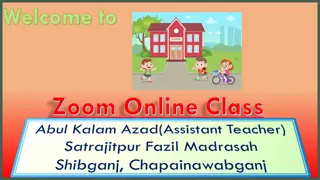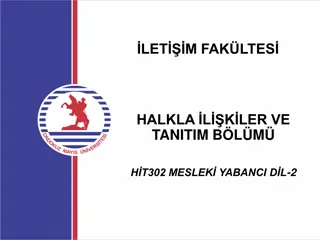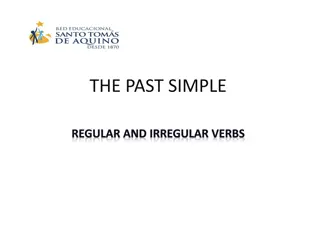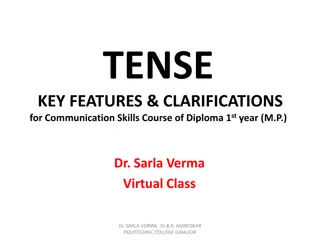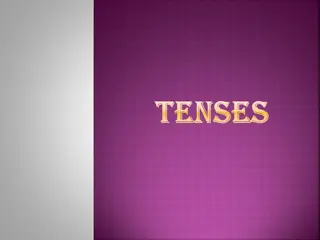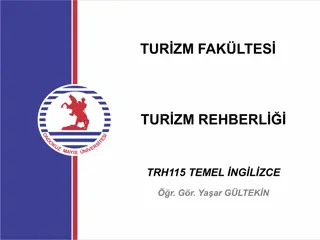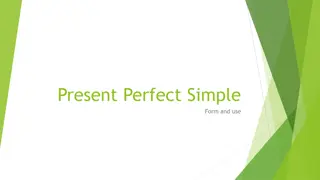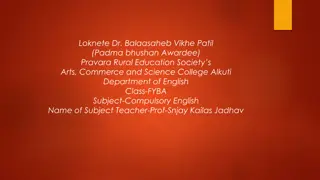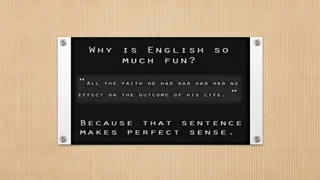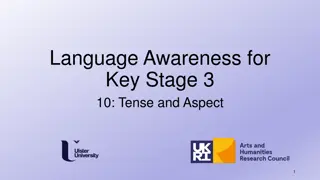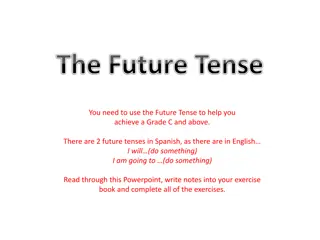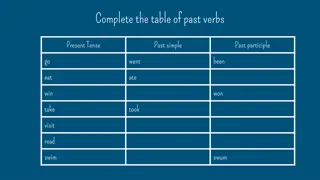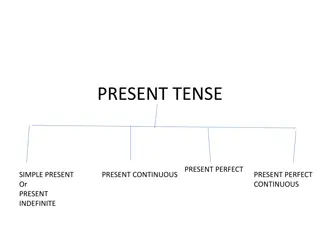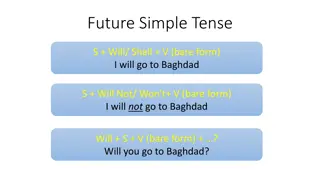Future Tenses and Examples of Simple Future Tense
Concept of future tenses in grammar, specifically focusing on the simple future tense through clear explanations and insightful examples. Understand how to express future events and states of being, enhancing your language skills effortlessly.
Download Presentation

Please find below an Image/Link to download the presentation.
The content on the website is provided AS IS for your information and personal use only. It may not be sold, licensed, or shared on other websites without obtaining consent from the author.If you encounter any issues during the download, it is possible that the publisher has removed the file from their server.
You are allowed to download the files provided on this website for personal or commercial use, subject to the condition that they are used lawfully. All files are the property of their respective owners.
The content on the website is provided AS IS for your information and personal use only. It may not be sold, licensed, or shared on other websites without obtaining consent from the author.
E N D
Presentation Transcript
Futurity (1) Presented By Asst. Prof. Estabraq R. I. (PhD.) Second Classes Department of Arabic Language College of Basic Education Al-Mustansiriyah University
Future Tenses The future tense expresses a future event or a future state of being. For example: I will jump in the lake. (future event) I will be happy. (future state of being) The tense of a verb is determined by when the action took place. The three main tenses are: past tense present tense future tense
Examples of the Simple Future Tense The simple future tense is used for an action that will occur in the future, e.g.: I will play after breakfast. Susan will not go to Germany. What we achieve inwardly will change outer reality. (Greek biographer) Always do your best. What you plant now, you will harvest later. (Author Og Mandino)
Examples Logic will get you from A to B. Imagination will take you everywhere. (Physicist Albert Einstein) Women and cats will do as they please, and men and dogs should relax and get used to the idea. (Robert A Heinlein) In the end, we will remember not the words of our enemies, but the silence of our friends. (Activist Martin Luther King Jr) Choose a job you love, and you will never have to work a day in your life. (Chinese philosophe Confucius) (Have to is known as a modal auxiliary verb. Like must, it is used to express obligation.)



